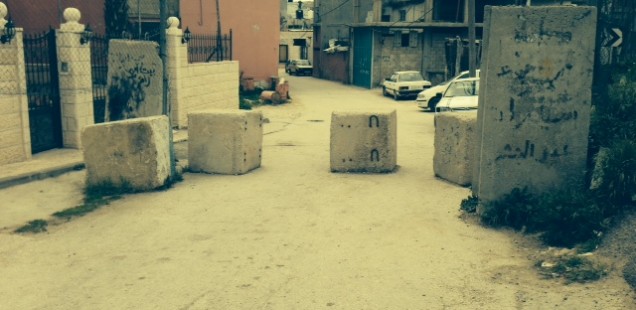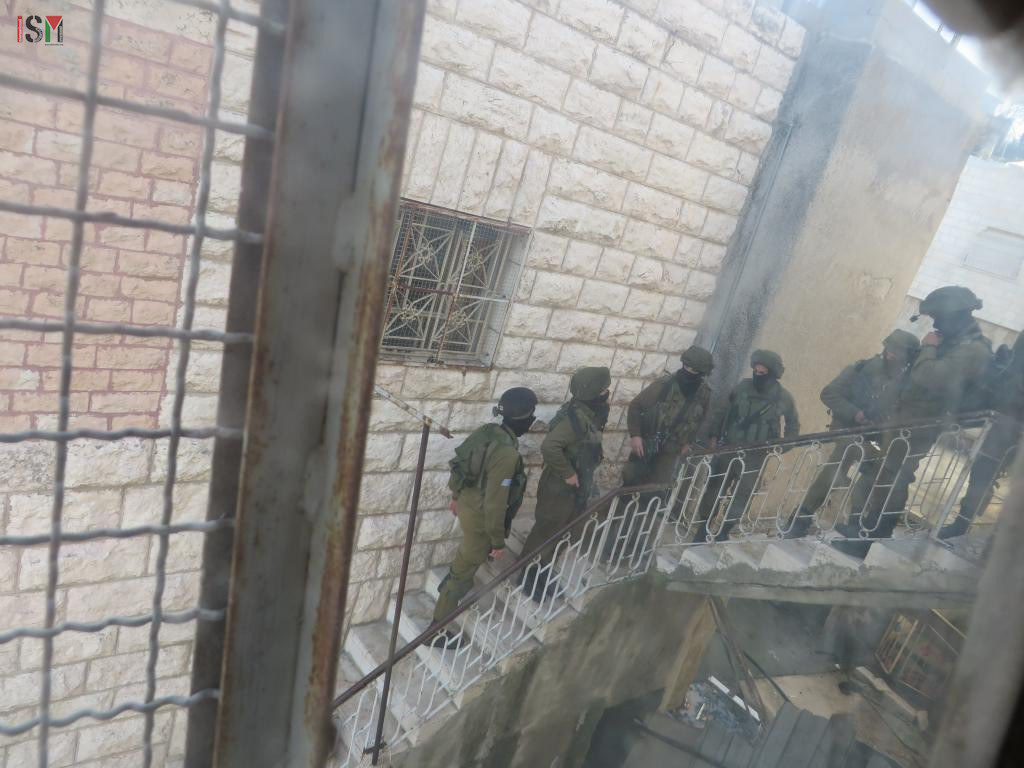Category: Hebron
-
Stories from Al Arroub refugee camp
28th March 2015 | International Women’s Peace Service | Al Arroub refugee camp, Occupied Palestine Situated along the main Hebron-Jerusalem road, across the street from a University, sits the heavily fenced and concrete blockaded main entrance to Al Arroub Palestinian refugee camp. Taysir, a 39 year old former prisoner of the Israeli government and resident of the camp,…
-
Israeli forces raid yet another family’s home in Tel Rumeida
11th March 2015 | International Solidarity Movement, Khalil Team | Hebron, Occupied Palestine Yesterday on the 10th of March around 1 AM in occupied Al-Khalil (Hebron), Israeli occupation forces raided the home of human rights activist Imad Abu Shamsiya and his family. The soldiers turned the house upside-down; the family watched as soldiers broke one of their cameras and stole…
-
VIDEO: Israeli forces invade ISM apartment as part of a campaign of continual harassment against activists in Hebron
5th March 2015 | International Solidarity Movement, Khalil Team | Hebron, Occupied Palestine To date, ISM volunteers in Al-Khalil (Hebron) have faced two attempted night raids, two invasions, and continual daily harassment from Israeli occupation forces. Other organizations in Hebron, including Youth Against Settlements and Christian Peacemaker Teams, have also faced harassment including raids, detentions, and arrests. On…



